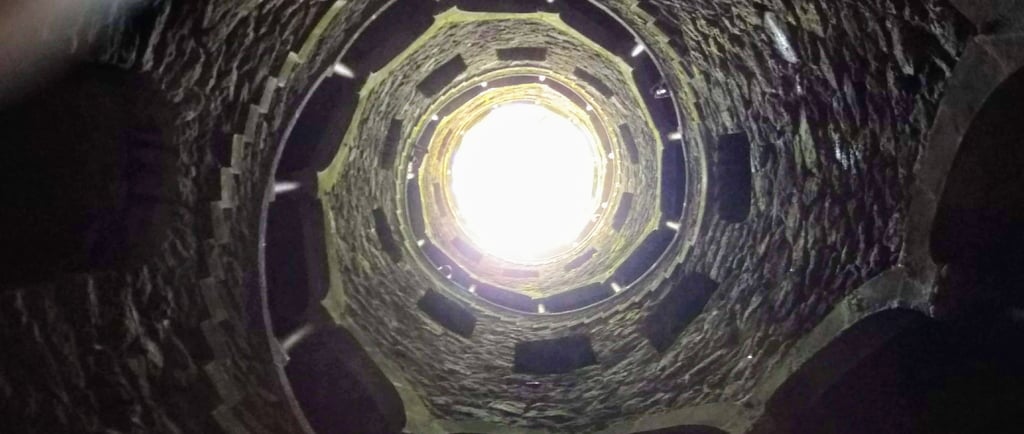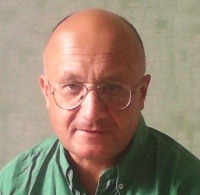A LOST BEAD
ALM No.74, March 2025
ESSAYS


I worked with children at a summer camp in 2014. It was situated on the shore of the Azov Sea. Every morning, the camp was filled with the smells of juniper bushes, pine trees, and lavender.
I have met different children: evil and kind, cheerful and sad, noisy and quiet, often even mysterious in my twenty-five years of teaching math. But now the reader will learn about Nastyusha. I could not call a thin, fragile, very short third-grader without two front baby teeth but with long, light-brown, often loose hair "Nastya" and immediately decided for myself that I would address the girl exactly like this: "Nastyusha" and nothing else.
Sincere, but at the same time uncertain and confused, her smile, along with the mischief in her gaze, always seemed inappropriately sad. However, on the very first evening at the camp, the reason for this was revealed simply. When the children were already going to bed, having survived the initial, hectic, screaming, and senselessly chaotic day at camp, someone knocked on my door. Ten-year-old Anya, Nastyusha's roommate, was standing at the door. She said very seriously:
- Can you come in to see us?
- Yes, - I answered, - but what happened?
- Nastya is some kind of, well, I don't know how to explain; she's not what she should be, - Anya said somewhat frightened.
When I entered the children's room, Nastyusha was not crying but was sitting in the middle of the bed like a little lump, in a yoga pose, wrapped in a sheet. Immediately looking at me, without waiting for a question, she said calmly, very slowly and thoughtfully:
- I just saw my mother. She died a year ago of blood cancer.
- Did you see her? - I asked a ridiculous question.
- Yes, - the girl answered even more quietly...
For a few seconds, I was confused, but then I said:
- That's good, Nastya! After all, Mom always remembers you, even in Heaven. She was, is, and will be because the human soul is immortal. Do you understand?
The girl nodded her head affirmatively.
- Do you go to church?
- Rarely. Only with Grandma, - the little girl said barely audibly, almost syllable by syllable.
- And thank God that you go to church.
I stroked the child's head with my palm and left the room.
Over the years of working with children, both at school and in children's camps, I have come to fully understand the meaning of the words from a song that I first performed on stage with my fellow students in front of kids at a completely different camp when I was still a camp counselor and not a teacher during my student years: "...you are dad, you are mom, you are a nanny, you are a friend, and in short, a camp counselor..." Of course, no teacher can replace a child's mother, but realizing this, I could not help but try to at least warm the wounded soul of the little creature.
From that evening, Nastyusha became attached to me. I had to teach her to swim in the sea and, when the opportunity arose, mend T-shirts and slippers, and make her laugh, especially in the evenings or early mornings when the girl was particularly sad, falling out of the whirlpool of the daytime bustle. It is possible that the girl would have become attached to any other adult who heard her and not just listened to her. Because of this attachment, she rarely let go of my hand, always holding tightly to it with her small palm, as if it were a straw giving, maybe deceptively, hope. On the fourth day of the children's stay at the camp, which was comfortably immersed in the shade of tall bushes and slender, majestic poplars, unexpectedly green for the burnt-out, faded summer, a grandiose dance competition was held on the scale of a children's health resort. As many as nineteen teams tried to present their vision of dance to the audience, sometimes open to the point of naivety.
All the styles on the improvised stage were mixed, and such musical and spectacular unsystematicity gave rise to the feeling of a carnival. Nastyusha, who was sitting next to me, immersed herself in the festive atmosphere and carefully watched what was happening. Suddenly, the girl decisively squeezed my hand and, without taking her eyes off the stage, quietly said, "My mother has such fashionable, colorful pants like that long-haired girl who just performed. Mom is short, and we bought them at the market on Barabashovka in Kharkov when we went there last summer to buy a school uniform for me".
Having buried my mother many years ago and my best friend the summer before last, and having encountered misfortune more than once during my years of teaching, I did not think that at forty-seven, something inside me could still break from a conversation with a child. But then it broke. I didn't know how to answer the little girl, so I simply stroked her hand and said nothing, understanding Nastenka's faith that her mother had not abandoned her on Earth, having gone to Heaven, and that she was alive and waiting for her at home. Of course, this could not continue for long. Then the cruel reality had to return, mercilessly erasing the good vision.
The girl continued to look at the stage as if nothing had happened. Or was it an illusion? "Has she already returned to this day, or is she still there, in last year's hot summer in Barabashovka, walking with her mother between the rows of merchants?" I could not answer myself as I looked at Nastenka. That same evening, I gave her a Prayer Book, a small blue book bought several months before in the Kiev-Pechersk Lavra. It contained prayers for the repose of the soul and others. The girl accepted the gift with understanding. And then, every day in the camp, I saw how, in the evenings, Nastyusha attentively read the Prayer Book. At the same time, it seemed that she radiated a soft but unreliable light, like a flickering, lost bead.
Yurii Tokar was born in 1967 in the Soviet Union. He graduated from Dnipropetrovsk State University in 1988 and began teaching mathematics and physics in the region affected by the Chernobyl disaster. Yuri Tokar's stories, essays, and poems have been published in newspapers and magazines in several countries, including Ukrainian, German, and American. For example, his work has appeared in the Russian-language magazine "Чайка" (Washington) and the newspaper "Gorizont" (Colorado).

